Safety is of utmost importance in commercial spaces, where the well-being of employees and customers is a top priority.
One area that requires special attention is the flooring, as it can pose a significant risk of slips and falls. To address this concern, many commercial spaces are opting for anti-slip floor tiles.
These tiles are designed to provide a secure and stable surface, reducing the chances of accidents and injuries.
Anti-slip floor tiles offer numerous benefits in commercial settings. Firstly, they enhance safety by providing grip and traction, even in wet or slippery conditions. This is particularly crucial in areas such as entrances, bathrooms, and kitchens, where there is a higher likelihood of spills or moisture.
Additionally, these tiles are highly durable, able to withstand heavy foot traffic and regular cleaning, ensuring long-term safety and functionality.
Moreover, anti-slip floor tiles come in various designs and aesthetic options, allowing commercial spaces to maintain their desired style without compromising on safety.
By investing in anti-slip floor tiles, businesses can create a secure environment that not only protects individuals but also minimizes the risk of legal liabilities associated with slip and fall accidents.
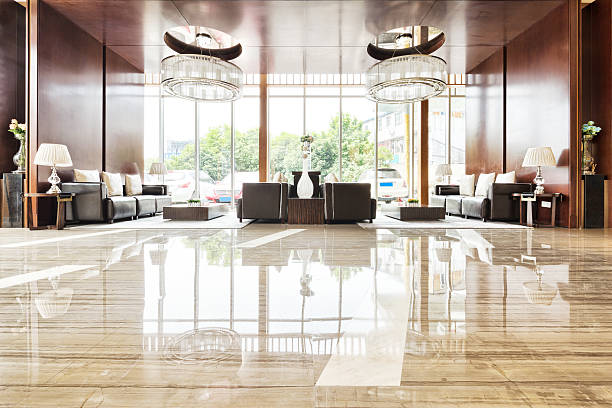
Enhancing traction and minimizing the risk of accidents, the use of these specialized flooring options proves to be a valuable investment for a variety of settings. Slip resistance testing is a crucial aspect of ensuring the safety of commercial spaces. By subjecting anti-slip floor tiles to rigorous testing, their slip resistance can be accurately determined. This testing involves measuring the coefficient of friction between the tile surface and a standardized object, simulating real-world conditions. The results of slip resistance testing help in selecting the most suitable anti-slip floor tiles for different areas, such as high traffic zones or areas prone to spills.
One of the key benefits of anti-slip floor tiles is their effective role in slip and fall prevention. Slip and fall accidents are a common cause of injuries in commercial spaces, leading to liability issues for businesses. By installing anti-slip floor tiles, the risk of such accidents can be significantly reduced. These tiles are designed with textured surfaces that provide better grip, even when the floor is wet or contaminated. The incorporation of abrasive materials or coatings enhances the traction, making it easier for people to maintain their balance and prevent slipping.

Another advantage of anti-slip floor tiles is their durability and longevity. Commercial spaces experience heavy foot traffic, which can quickly wear down traditional flooring options. However, anti-slip floor tiles are specifically engineered to withstand high levels of wear and tear. They are made from durable materials that are resistant to scratches, stains, and abrasions. This makes them perfect for areas that require frequent cleaning or are exposed to harsh conditions. Additionally, these tiles are easy to maintain, reducing the need for frequent repairs or replacements, thus saving costs in the long run.

| Slip Resistance Testing | Slip and Fall Prevention |
| Measures coefficient of friction between tile surface and standardized object | Reduces risk of slip and fall accidents in commercial spaces |
| Helps in selecting suitable anti-slip floor tiles for different areas | extured surfaces provide better grip, even when floor is wet or contaminated |
| Accurately determines slip resistance of tiles through rigorous testing | Incorporation of abrasive materials or coatings enhances traction |
This discussion will focus on different materials and textures of anti-slip floor tiles, as well as choosing the right tile for your space.
Various materials, such as porcelain, ceramic, and natural stone, offer different levels of slip resistance and durability.
Additionally, the texture of the tile, such as a raised or textured surface, can further enhance its anti-slip properties.
When selecting an anti-slip floor tile, it is important to consider the specific requirements of your space, including the level of foot traffic, moisture levels, and aesthetic preferences.

Different materials and textures of anti-slip floor tiles offer a range of options for creating a secure and stable surface. These tiles come in different sizes, allowing for flexibility in installation methods and design possibilities. Additionally, they offer a wide range of color options, enabling customers to choose tiles that match their aesthetic preferences or blend seamlessly with the existing decor.
Maintenance requirements vary depending on the material and texture of the tiles, with some requiring regular cleaning using specific cleaning products to maintain their slip resistance ratings and durability levels. Furthermore, anti-slip floor tiles are designed to have moisture resistance capabilities, making them suitable for use in areas prone to spills or wet conditions.

When it comes to the price range, anti-slip floor tiles are available at different price points to accommodate various budgets. Customers also have the option to choose from a variety of slip prevention techniques and surface preparation methods to ensure optimal performance. To make an informed decision, customers can refer to customer reviews and warranty information to gauge the quality and reliability of the tiles.
Moreover, environmental impact is an important consideration for many, and some manufacturers offer eco-friendly options that minimize harm to the environment. Lastly, for those seeking a unique touch, custom designs can be created to meet specific requirements, adding a personalized touch to the space.
Overall, the availability of different materials and textures in anti-slip floor tiles provides customers with a wide array of options to create a secure and stable flooring solution that suits their needs and preferences.
Discover Sunvin Ceramics' affordable and diverse collection of commercial anti-slip floor tiles. Download our product catalog today.
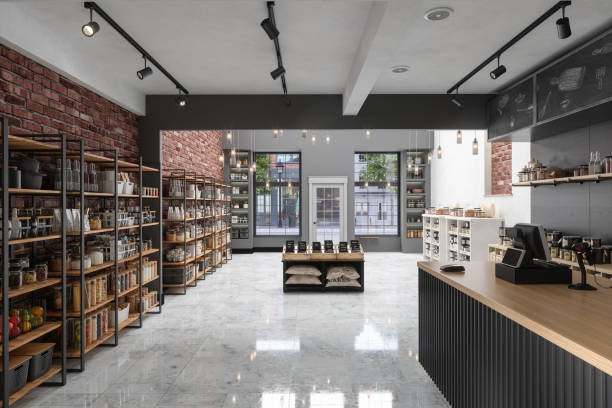
One crucial aspect in creating a secure and stable flooring solution is selecting the most suitable tile for the specific space. When choosing the right tile for your commercial space, there are several factors to consider. One key consideration is cost effectiveness. It is important to weigh the cost of the tiles against their durability and longevity. Some tiles may initially have a higher price tag but offer long-term cost savings due to their ability to withstand heavy foot traffic and resist wear and tear. Additionally, considering the sustainability aspects of the tiles is essential. Opting for eco-friendly tiles can contribute to a greener environment and align with the values of your business. There are various environmentally friendly options available, such as tiles made from recycled materials or those that are produced using sustainable manufacturing practices.
To help you make an informed decision, the following table provides an overview of cost effective and sustainable tile options for commercial spaces:
| Tile Type | Cost Effectiveness | Sustainability Aspects |
| Porcelain | High | Eco-friendly options |
| Ceramic | Moderate | Recycled materials |
| Vinyl | Low | Sustainable practices |
| Cork | High | Renewable resource |
| Concrete | Moderate | Low VOC emissions |
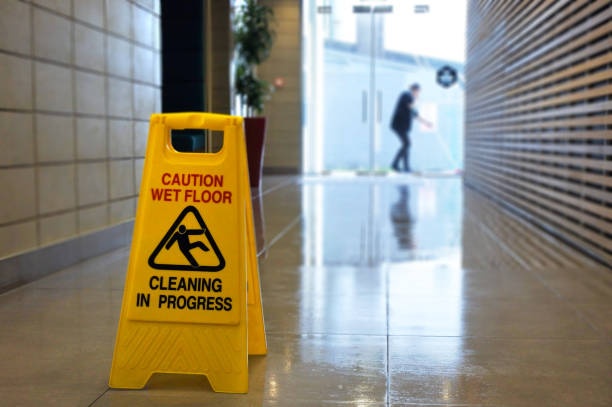
By considering the cost effectiveness and sustainability aspects of different tile options, you can select the most suitable flooring solution for your commercial space. This will not only provide a secure and stable surface but also contribute to long-term cost savings and a greener environment.
This discussion will focus on the installation process of anti-slip floor tiles, particularly the choice between professional installation and do-it-yourself (DIY) methods.
It will also consider the different surfaces on which these tiles can be installed and the specific considerations that need to be taken into account for each surface.
Both aspects are important to consider in order to ensure the effectiveness and durability of the anti-slip floor tiles.
Professional installation of anti-slip floor tiles ensures a precise and flawless execution, providing peace of mind and enhanced safety for both residential and commercial spaces.
The process of installing anti-slip floor tiles requires professional training and expertise to ensure that the tiles are properly installed to maximize their effectiveness. Professional installers have the knowledge and skills to assess the specific requirements of each space and select the most suitable anti-slip floor tiles. They are trained in the proper techniques and safety precautions necessary to handle the installation process efficiently and effectively.
When it comes to the installation of anti-slip floor tiles, opting for professional installation offers several advantages. Firstly, professional installers have undergone extensive training in the field, equipping them with the necessary knowledge and expertise to handle the installation process. Their experience enables them to understand the nuances of different types of anti-slip floor tiles and select the most appropriate ones for a particular space.
Secondly, professional installers are well-versed in safety precautions, ensuring that the installation process is carried out in a secure manner, minimizing the risk of accidents. They have the necessary equipment and tools to handle the tiles safely, reducing the chances of injuries or damage. Additionally, professional installation provides a guarantee of quality and durability, as the installers have the expertise to install the tiles correctly, ensuring a long-lasting and effective anti-slip surface.
Professional installation of anti-slip floor tiles is highly recommended for both residential and commercial spaces. The expertise and training of professional installers ensure a precise and flawless execution, providing peace of mind and enhanced safety. By opting for professional installation, individuals can rest assured that the tiles will be installed correctly, maximizing their effectiveness and durability.
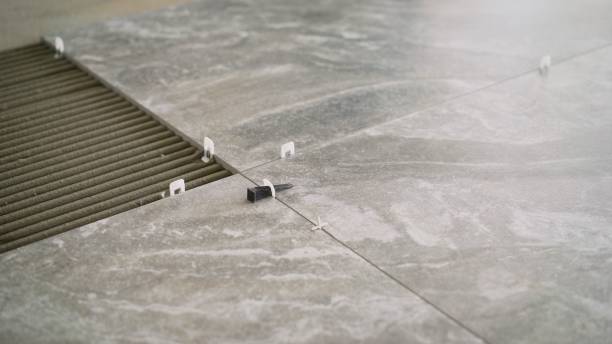
Considerations for different surfaces include assessing the specific requirements of each space and selecting the most suitable options to ensure optimal safety and functionality. When it comes to anti-slip floor tiles in commercial settings, different surfaces may present unique challenges and require specific safety measures.
One key consideration is the material of the surface. For example, a tiled floor in a bathroom may be prone to becoming slippery due to water spills. In this case, it is important to choose anti-slip floor tiles that have a high coefficient of friction, providing better traction even when wet. On the other hand, a concrete floor in a warehouse may require tiles with a higher resistance to heavy loads and abrasion. Assessing the specific usage and conditions of each surface is crucial in selecting the appropriate anti-slip floor tiles that can withstand the demands of the environment.
Another important consideration is the texture of the surface. Smooth surfaces, such as polished tiles or hardwood floors, are more likely to become slippery, especially when exposed to moisture or contaminants. In such cases, anti-slip floor tiles with textured surfaces can greatly enhance safety by providing increased grip and reducing the risk of slips and falls. Additionally, the level of traffic in a particular area should also be taken into account. High-traffic areas may benefit from tiles with a more aggressive anti-slip surface, while areas with lower footfall may require less aggressive options. By considering these factors, businesses can ensure that the anti-slip floor tiles chosen for different surfaces meet the necessary safety standards and provide a reliable solution for preventing accidents in commercial spaces.

This paragraph will discuss the key points of industry standards and regulations in relation to testing and certification of anti-slip floor tiles in a commercial setting.
Industry standards and regulations play a crucial role in ensuring the safety and quality of anti-slip floor tiles by providing guidelines and requirements for manufacturers to follow.
Recognized certifications and ratings serve as a mark of approval and compliance with these standards, providing customers with assurance of the product's performance and durability.

Industry standards and regulations for anti-slip floor tiles can be visualized as a comprehensive framework that governs the safety and performance requirements of these products. These industry regulations are put in place to ensure that anti-slip floor tiles meet certain safety standards and provide adequate protection against slips and falls.
Compliance with these regulations is essential for manufacturers, as it not only ensures the safety of consumers but also helps to establish trust and credibility in the market.

Recognized certifications and ratings serve as a reliable indicator of the adherence of anti-slip flooring products to established safety and performance standards. These certifications and ratings are essential for both manufacturers and consumers as they provide a standardized way of evaluating the quality and effectiveness of the products. Various organizations and testing laboratories offer certifications and ratings based on rigorous testing procedures and compliance with industry standards and regulations.
One of the most recognized certifications in the field of anti-slip flooring is the National Floor Safety Institute (NFSI) certification. The NFSI provides a comprehensive testing and certification program that evaluates the slip resistance of flooring products. This certification is highly regarded in the industry and signifies that the product has undergone rigorous testing to ensure its slip resistance properties.
Another important certification is the Underwriters Laboratories (UL) certification. UL is a global safety certification organization that evaluates the safety and performance of various products, including anti-slip floor tiles. UL certification ensures that the product meets specific safety standards and has been tested and verified by an independent third-party laboratory.
In addition to certifications, ratings are also used to assess the slip resistance of anti-slip floor tiles. The most commonly used rating system is the coefficient of friction (COF) rating. The COF rating measures the slip resistance of a surface by determining the friction between the surface and a standardized testing material. A higher COF rating indicates better slip resistance. Other rating systems, such as the British Pendulum Test Value (PTV) and the Ramp Test, are also used in certain regions and industries to evaluate slip resistance.
This paragraph provides an introduction to the discussion on maintenance tips and techniques for anti-slip floor tiles in commercial settings.
The subtopic covers two key points: cleaning and stain removal, and repairing damaged tiles.
These maintenance tasks are crucial to ensure the longevity and functionality of the tiles, and this discussion will explore effective techniques and strategies for carrying out these tasks in a commercial environment.
To effectively maintain the cleanliness and minimize stains on anti-slip floor tiles, regular cleaning and stain removal procedures should be employed. Cleaning techniques specifically designed for these types of tiles can help preserve their anti-slip properties while keeping them free from dirt and grime.
One effective method is to sweep or vacuum the tiles regularly to remove loose debris and prevent it from scratching the surface. Additionally, mopping the floor with a mild detergent solution can help remove dirt and stains without causing any damage.
When it comes to stain removal, it is important to act promptly to prevent the stain from setting into the tile. For light stains, a mixture of warm water and mild dish soap can be used. Apply the solution to the stain and gently scrub with a soft brush or cloth. Rinse the area thoroughly with clean water and dry it completely. For tougher stains, such as grease or oil, using a specialized cleaner or degreaser may be necessary. It is important to follow the manufacturer's instructions and test the product on a small, inconspicuous area before applying it to the entire stain.
Incorporating eco-friendly products into the cleaning routine is also highly recommended for both the environment and the longevity of the tiles. Many commercially available cleaners now offer eco-friendly options that are formulated to be gentle on the tiles while still providing effective cleaning power. These products are typically free from harsh chemicals and toxins, making them safer for both the user and the environment. By choosing eco-friendly cleaning products, not only are the tiles kept clean, but the overall impact on the environment is reduced as well.
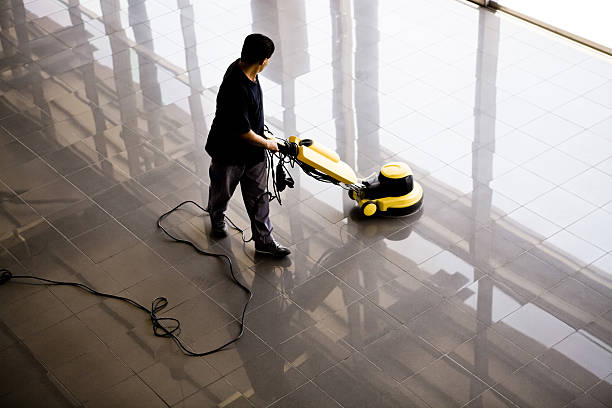
One method for addressing damage to the tiles is through the use of appropriate repair techniques.
When it comes to repairing damaged anti-slip floor tiles in commercial settings, tile replacement and crack filling are two common approaches. In cases where the damage is extensive or irreparable, tile replacement is often the most effective solution. This involves removing the damaged tile and replacing it with a new one that matches the existing tiles in terms of size, color, and texture. It is important to ensure that the replacement tile has the same anti-slip properties to maintain the safety of the floor surface. Tile replacement may require the assistance of professionals with experience in handling commercial floor installations to ensure a seamless repair.
Another method for repairing damaged anti-slip floor tiles is through filling cracks. Cracks can occur due to various reasons, such as heavy foot traffic, impact, or structural issues. To repair cracks, a suitable filler material is used to fill in the damaged area. This filler material should be selected based on factors such as the type of tile, the severity of the crack, and the expected load-bearing capacity of the repaired tile.
The process involves cleaning and preparing the crack, applying the filler material, and smoothing it out to create a seamless finish. It is essential to follow the manufacturer's instructions and guidelines to ensure the proper application of the filler material and achieve a durable and long-lasting repair. Regular inspection and maintenance should also be carried out to identify cracks early and prevent further damage to the tiles.
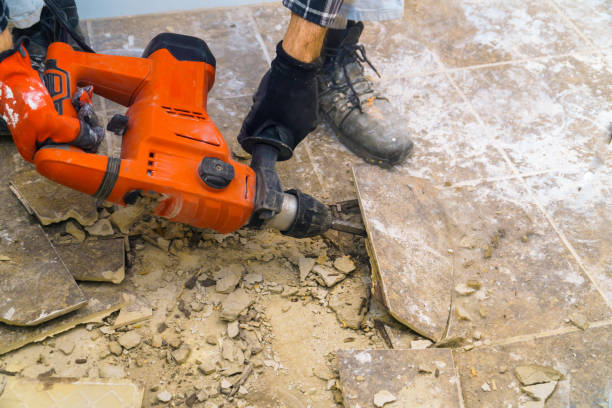
Anti Slip Tile Blog Series:
Non Slip Ceramic Tile For Bathroom-10 Ideas And Guides
Porcelain Anti Slip Floor Tiles China
Anti Slip Porcelain Garden Tiles
Favorable Anti Slip Floor Tiles Price At Sunvin Ceramics
Anti Slip Floor Tiles for Wet Rooms
Non Slip Floor Tiles For Living Room
Anti Slip Ceramic Floor Tiles Commercial
Anti Slip Rating Tiles∣Your Essential Guide 2023
Non Slip Floor Tiles For Commercial Kitchen
In conclusion, anti-slip floor tiles are an essential solution for ensuring safety in commercial spaces. They come in a variety of types, each designed to meet specific needs and requirements. These tiles find applications in various sectors such as retail, hospitality, healthcare, and more.
Understanding the importance of anti-slip floor tiles and their applications in commercial spaces can help businesses create a safe environment for employees and customers alike. By prioritizing safety, businesses can enhance their reputation, improve customer satisfaction, and create a positive working environment.
With over a decade of expertise, Sunvin Ceramics delivers superior commercial anti-slip floor tiles. As a trusted Chinese tile supplier, we provide unparalleled quality and reliability. Choose us for the best-in-class solutions you deserve.